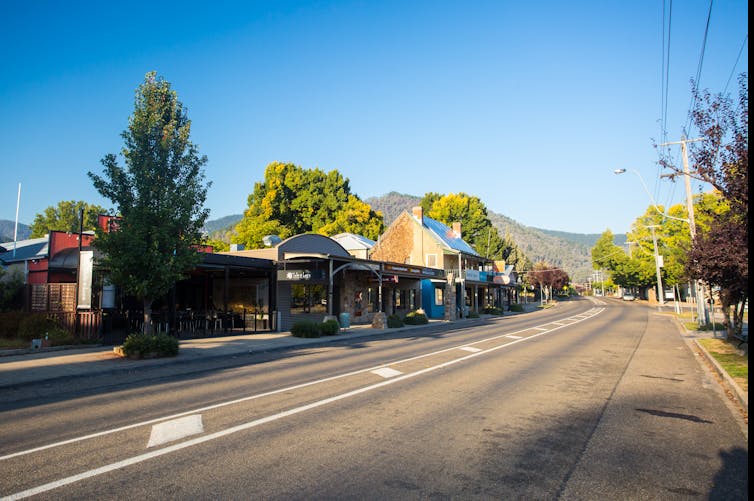UniSA Professor of Biostatistics and Epidemiology Adrian Esterman in The Conversation.
From 11.59pm tomorrow (September 16), regional Victoria will take the third step out of COVID-19 restrictions, Premier Daniel Andrews announced today.
According to the roadmap revealed last weekend, the move to step 3 in regional Victoria could happen when the daily average number of cases for the previous 14 days was less than five, and there were zero community cases without a known source for 14 days.

Regional Victoria actually reached the 14-day moving average target on September 10, with 4.5, and by today the average had dropped to 3.6. They were just waiting to hit the mystery cases target.
Among the restrictions to be eased under step 3, up to ten people will be allowed to gather outdoors, and hospitality venues will be able to open again for sit-down service. Beauty salons and hairdressers will also reopen, and people who live in regional Victoria will be able to travel to other regional areas in the state.
Heading in the right direction
This easing of restrictions is undoubtedly good news for regional Victoria. But it’s also reason for people in Melbourne to be optimistic.
Certainly, regional Victoria and metropolitan Melbourne are quite different in terms of the epidemiology of their respective second waves. But the targets set out in the roadmap do appear to be achievable.
The 14-day moving average of daily case numbers for Melbourne is currently at 52.9, and needs to drop below 50 to reach the target for step 2.
Based on my modelling of the 14-day moving average, Melbourne could reach this target as early as Thursday.
This model takes the 14-day moving average for the last 30 days, and it assumes the continuing downward trend is exponentially decreasing. That is, it plots a slow downward curve that approaches zero.
The target to move to step 3 is a 14-day moving average of fewer than five cases per day statewide. A similar modelling strategy shows this is likely to occur on about October 22.
Save the date (or don’t)
Notably, there was no date set for the move to step 3 in regional Victoria, which is very different to the roadmap set out for metropolitan Melbourne.
In Melbourne, the second step is not due to occur until September 28, and the third step not until October 26 – and only then if case numbers have dropped below designated thresholds.
The key question for the Victorian government is whether to stick to this time frame, or allow for an earlier move to the second and third steps if Melbourne achieves the moving average targets ahead of time.
Read more:
Victoria’s path out of COVID-19 lockdown – quick reference guides
In a recent article on The Conversation, I called for a more nuanced approach to lifting restrictions. In other words, the government shouldn’t be too rigid with the roadmap.
The people of Victoria have been asked to make enormous sacrifices to get the outbreak under control, and it’s working. I believe the Victorian government should be willing to reward Melburnians by moving to the third step when they reach the relevant case threshold, regardless of the date.
What now?
It’s essential that over the next few weeks, Melbourne residents continue to stick to the restrictions, to help hit the targets as soon as possible.
The numbers of COVID-19 tests has dropped off in the past few days, averaging about 14,000 tests a day. With the lower number of cases and fewer people with respiratory symptoms now winter is over, this is not really surprising. But it’s vital high rates of testing continue, with a focus on hotspot areas, such as the Casey local government area.
Read more:
‘Slow and steady’ exit from lockdown as Victorian government sets sights on ‘COVID-normal’ Christmas
As for regional Victoria, people there must also stick to the remaining restrictions. This will give them the best chance of moving towards step 4 and beyond.
![]()
Adrian Esterman, Professor of Biostatistics and Epidemiology, University of South Australia
This article is republished from The Conversation under a Creative Commons license. Read the original article.


